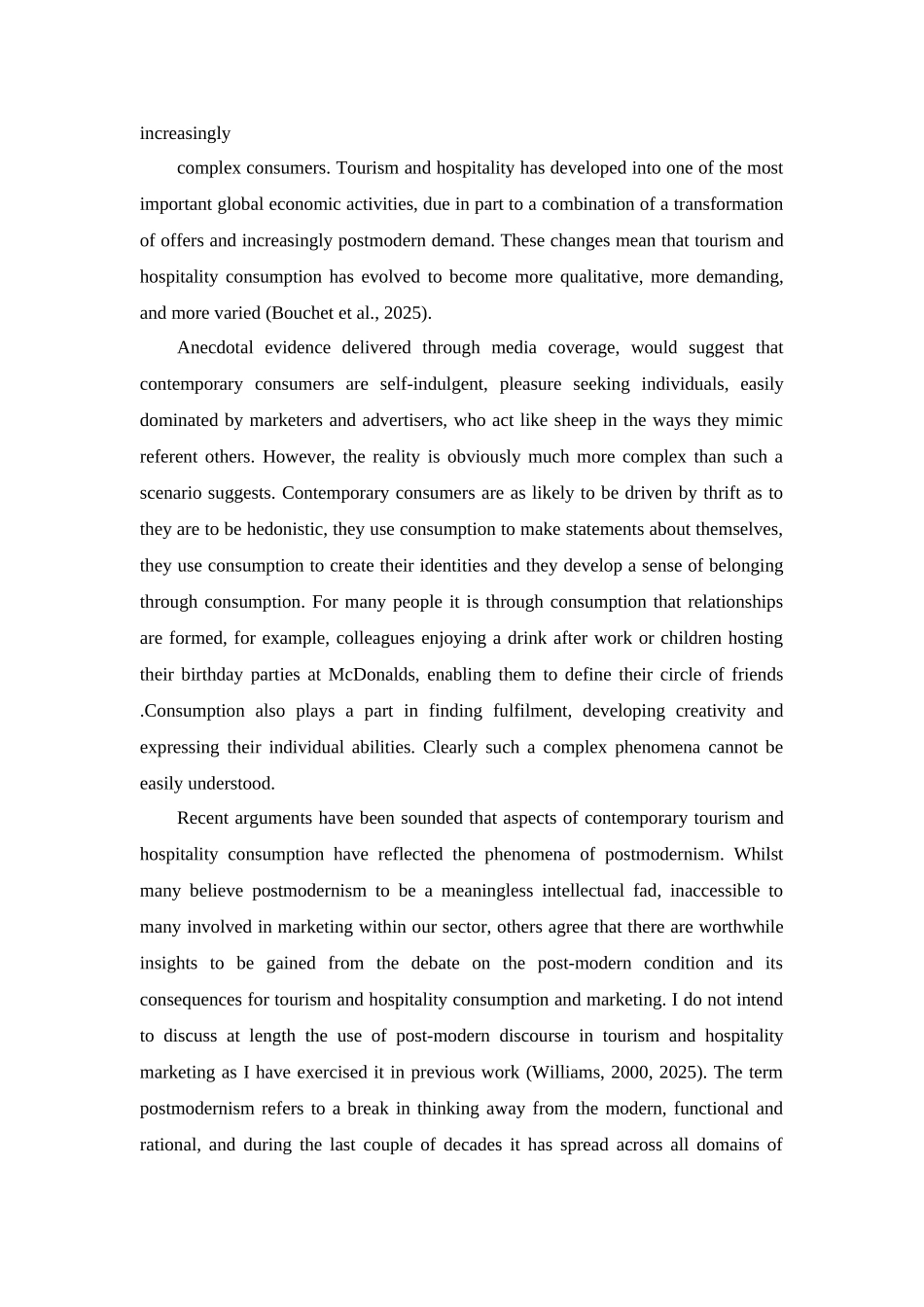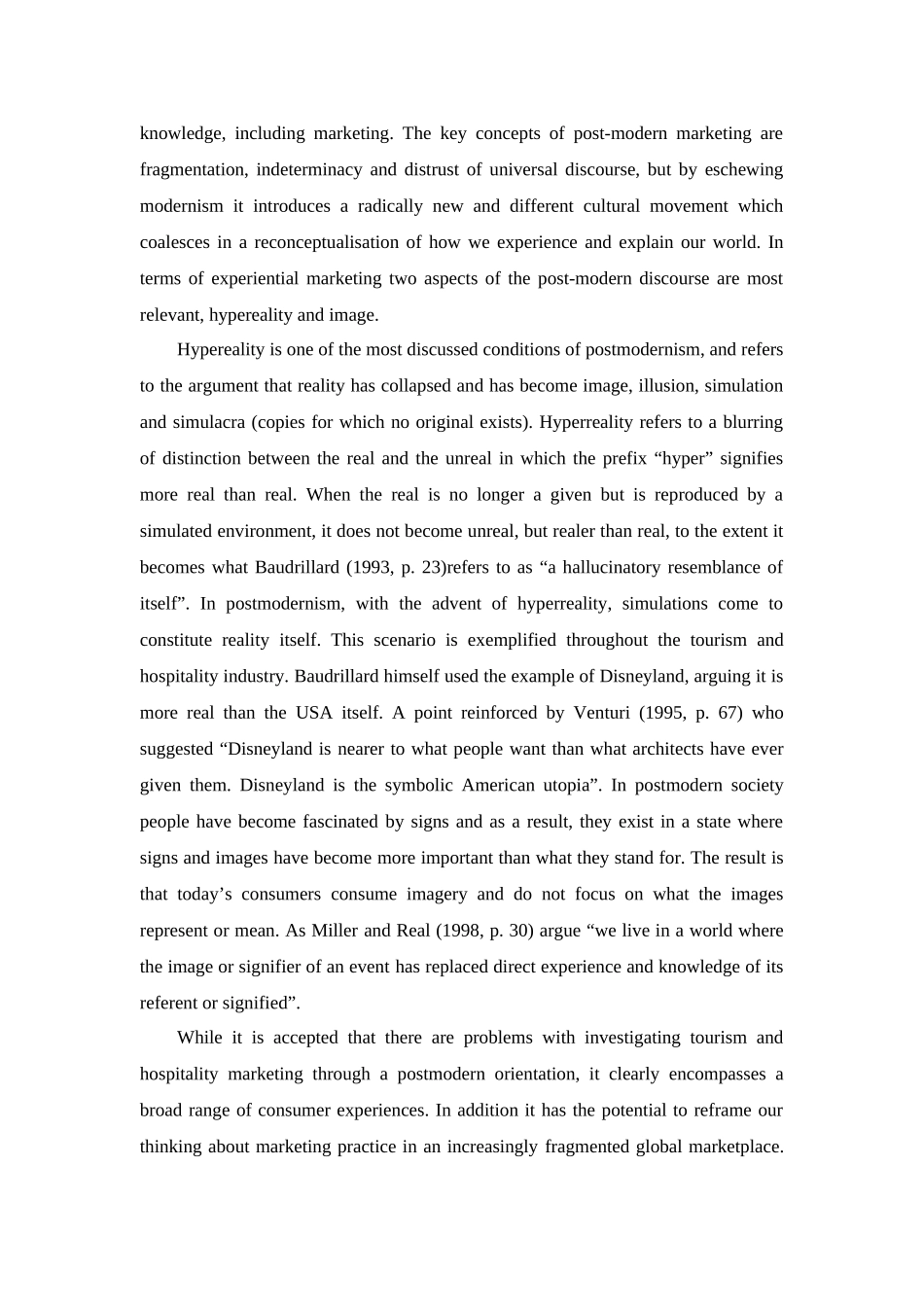标题:Tourism and hospitality marketing: fantasy, feeling and fun原文:Experiential marketing has become a cornerstone of many recent advances in areas such as retailing, branding and events marketing, but with attempting to sell an experience of a place through relating it to the lifestyle constructs of consumers. For many years we have discussed the characteristics of tourism and hospitality products, which suggest that marketing within the sectors is different to many other industries, as purchase decisions are made on the basis of projected and perceived images, rather than prior experience. However, despite the amount of literature being written on these perceived differences, most marketing in the sector relies heavily on traditional marketing concepts, and it is often difficult to discriminate tourism and hospitality approaches to marketing from those advocated for other consumer products.Tourism and hospitality has become a major economic activity as expectations with regard to the use of our leisure time have evolved, attributing greater meaning to our free time. The evolution of tourist behaviour encourages both change and the emergence of new meaning (Bouchet et al., 2025). This results in marketing having potentially a greater prominence in tourism and hospitality, than in other industries. Potential that is not always fully achieved (Morgan and Pritchard, 2025). The key reason for this failing is that in the main marketing for tourism and hospitality has been focussed not on the consumer, but on the destination or outlet, with marketing strategies being related to the products offered (Williams, 2000, 2025). As marketing within this sector has evolved however, the offer has become increasingly le...


